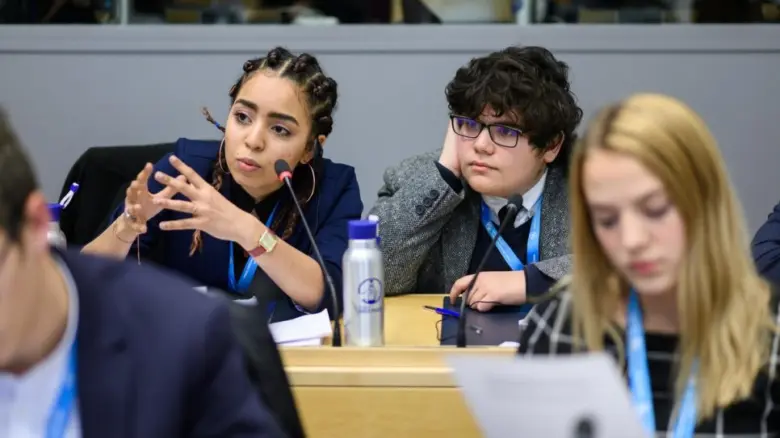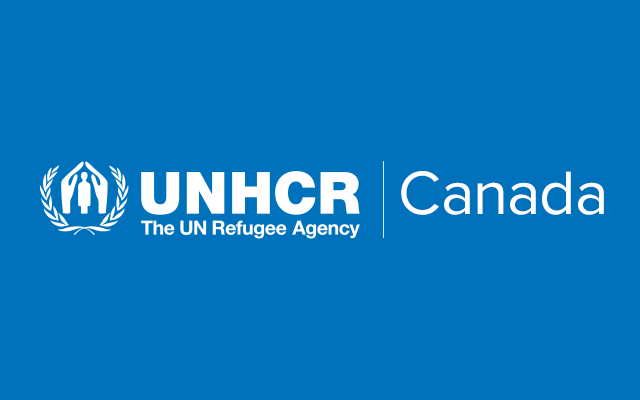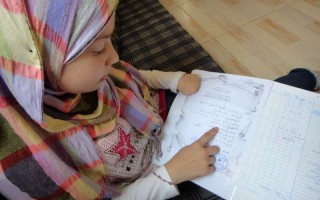
Students discuss ideas to help refugees as part of UNHCR’s MUN Refugee Challenge in Geneva, Switzerland, January 2020.
© UNHCR/Mickael Planes
UNHCR challenged students to tackle issues related to forced displacement in their debates. Here’s a summary of their winning ideas and the thinking behind them.
By Pauline Eluère in Geneva
Have you heard of Model United Nations (MUN)? These simulations of the UN, in which students from primary school to university step into the shoes of diplomats to solve global issues, have gained popularity across the globe to the point of being featured in the Simpsons.
At the beginning of 2020, UNHCR, the UN Refugee Agency, decided to challenge students to tackle issues related to forced displacement during their debates. The reward? Getting their best ideas shared with policy-makers.
More than 20,000 students in 75 countries accepted the MUN Refugee Challenge. They collectively drafted “resolutions” which were reviewed by a panel of experts and young refugees. Here’s a summary of the winning ideas and some of the thinking behind them.
1. Emergency residency permits for people fleeing climate change
“Many of those displaced by climate change are in parts of the world that contribute the least to carbon emissions. We have a moral obligation to help them out.” – Shalom, 20, Nigeria.
University students from the Lagos MUN in Nigeria urged states to create emergency residency permits to allow people fleeing droughts, floods and sea level rises to relocate to safe places.
2. Early-warning systems to relocate people affected by droughts
Middle and high school students at the Mediterranean MUN in Cyprus recommended stepping up research on tracking droughts to develop early-warning systems so that affected populations can be relocated before they are forced to abandon their homes and lands.
3. Educate future generations about refugees
To counter xenophobia, students at Valley Forge MUN in Costa Rica urged governments to reform their education systems to include themes relating to refugees’ rights.
“Young people will be the next ones in charge of the world. It all starts in school. This is where we need to learn that refugees are not aliens from another world, that we are all equals.” – Claudia, 15, Costa Rica.
4. Screening tool to alert social media users to hate speech about refugees
“Toxic narratives are a barrier to integration. It’s imperative that we extend our compassion to welcome refugees with open arms to ensure mutual success.” – Anwar and Amir, 18, Canada
International students at the National High School MUN in the United States called on social media platforms to create algorithms to detect hate speech directed at refugees and to alert users.
5. International database of job opportunities for refugees
To boost the economic inclusion of refugees, high school students at the Lebanese American University MUN in Lebanon suggested creating an international database of employment opportunities for refugees, allowing employers to e-scout refugees based on their qualifications and skills.
6. A 10 per cent tax reduction for companies employing refugees
To give employers an incentive to hire refugees, high school students at the Vancouver Youth MUN in Canada proposed a 10 per cent tax break for companies employing refugees and a “global citizen” label to recognize their contribution.
7. Better internet access and online education platforms
High school students at Ramona MUN in California asked states and companies to improve internet access in refugee communities and to provide education platforms with pre-recorded lectures and assignments for children facing connectivity issues.
8. Mental health programmes for refugees at schools
To improve refugees’ mental wellbeing at schools, students at Inventure Academy MUN in Bengaluru, India, suggested more training for teachers and giving refugee children access to extra-curricular activities such as sports and music to counter social isolation.
“When we think about refugee education, we are so lost in the physical needs of the students that we somehow rule out mental health. But it is so important for refugees not just to propel them in their studies, but to allow them to live a better life.” – Shayan, 16, India.
———-
The winning ideas were shared during the High Commissioner’s Dialogue on Protection, a high-level annual event bringing together policy-makers, refugees, experts and scholars. UNHCR will promote them to inspire people to build a world that is more welcoming of refugees.
“It’s really exciting that these ideas could be shared with decision-makers. It’s important that the youth plays a big role in trying to tackle these issues. We hold the ability to try and change so many written aspects of society.” – Evie, 16, Cyprus.
Originally published by UNHCR on 9 December 2020.




